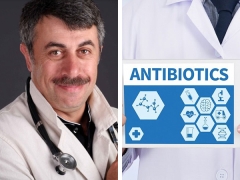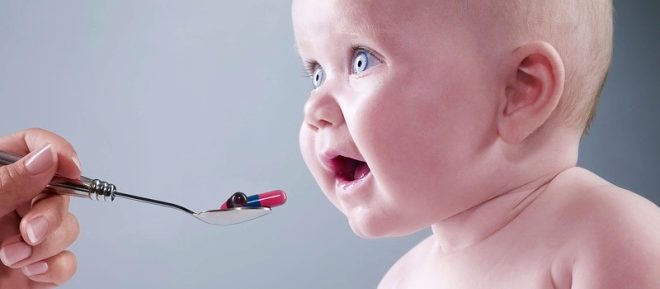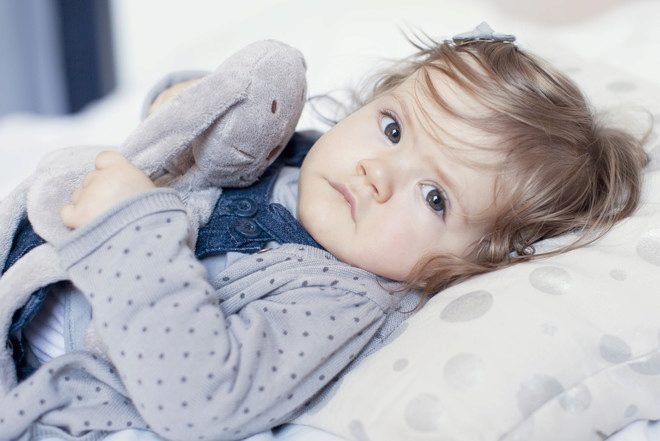Dr. Komarovsky about antibiotics
The child fell ill, his temperature, snotcoughing hurts throat. In this situation, parents who want to alleviate the condition of the baby are usually divided into two camps - in one supporters of antibiotics, in the other - their opponents. With their doubts and questions, mothers and fathers turn to the well-known children's doctor Yevgeny Komarovsky.
We tried to collect in a single article a lot of separate answers of this specialist, so that it would be easier for parents to understand when and how to give antibiotics to children.
Special features
Evgeny Olegovich tells a lot and willingly about preparations of antimicrobial action in his articles, books and video lectures. First of all, the doctor emphasizes that they exist to combat various bacteria, a number of fungi, chlamydia, etc. In almost all cases when the disease is caused by bacteria, it is impossible to do without antibiotics. They help to recover, and in some cases save a person’s life, because almost all bacterial diseases are very difficult.
Opinion of Dr. Komarovsky about antibiotics, when they can still be given can be seen in the next video.
But in Russia there is another problem - many are beginning to take antibacterial drugs for influenza and acute respiratory viral infections, and even doctors prescribe them to their young patients.
Komarovsky emphasizes that antibiotics against viruses that cause influenza, ARVI, Colds, as well as a lot of other diseases, are powerless. And it is harmful to take them, as the risks of complications increase and antibiotic resistance is formed.
Komarovsky does not in the least doubt the qualifications of colleagues who do this, and even gives a reasonable explanation for this situation. If the doctor sees that the child has the flu or ARVI (this is 99% of all the "cold" problems), he realizes that there is nothing for him to cure the virus. Insofar as the treatment of the virus is its destruction, and only the child’s immunity is capable of doing so.
A conscientious doctor, of course, must tell his parents that he doesn’t need any medicine, give advice on airing, drinking plenty of water, and wet cleaning the room. And that's all. At the same time, he is obliged to warn mom and dad that complications of a viral infection are possible, and no magic pill can somehow affect their likelihood, complications either will or will not.
Most likely, moms and dads will say that the doctor who speaks to them is incompetent and will go to another with a request to appoint at least something.
Thus, pediatricians advise antibiotics “just in case” more to reassure parents and in order to protect themselves from possible legal consequences, if suddenly a child starts on the background of ARVI pneumonia.
Parents in this situation need to be able to say no. Komarovsky recommends learning to object in response to such appointments, because it will make life easier for everyone - and the doctor, who actually knows that antibiotics with the virus will only harm. Mom, who will know that she is guarding the health of the baby. The very baby, who will not be stuffed with potent drugs, which he now absolutely do not need.
Remember that with flu, ARVI, with scarlet fever, measles and chickenpox antibiotics do not take! And if the doctor says that you have tonsillitis, then the options may be different, depending on which pathogen was the cause.
Drip, prick or drink antibiotics
To this question, Evgeny Komarovsky answers that it is necessary to act on the situation. Today there are many forms of release of antimicrobial drugs. But their improper use is unacceptable. Often parents buy an antibiotic in the form of a dry substance for breeding injections, dilute it and give it to drink or drip in the ear of the child.
This is wrong, says Komarovsky. Each drug should be used strictly as prescribed. The only exception - two unpleasant diagnosis - purulent otitis and purulent conjunctivitis. With them, the powder for injections is really allowed to be diluted with saline and drip, respectively, into the ear and eyes.
When to stop treatment
Many mothers argue like this: the child has become much better, his temperature has fallen, his appetite has appeared, he no longer lies in bed all day long, which means it’s time to cancel antibiotics so as not to stuff the toddler with excess chemistry. This approach is criminal, says Yevgeny Komarovsky.
The treatment regimen is prescribed for a reason. Different antibiotics can accumulate in the body in different ways, hence the timing is different - one drug is recommended to give the child for three days, the other - five days. Prematurely interrupted therapy can cause recurrence of the disease, the occurrence of severe complications. In addition, bacteria that are not completely killed in a child’s body will develop their own immunity against an antibiotic, and next time they will be resistant to it.
Is it possible to be treated with a single drug for various diseases?
Apply the same antibiotic to treat various bacterial diseases, of course, possible. But Komarovsky doesn’t recommend treating the same disease with one drug. This increases the risk of drug allergies.
If the baby is sick two months after recovering and taking antibiotics, the doctor should prescribe another drug. This will help avoid allergies and increase the chances of quickly destroying the bacteria. After all, some of the microorganisms could have stayed with a child since the last recent illness, they have resistance to the antibiotic that was prescribed last time. Requires a new drug.
Komarovsky draws the attention of adults to the fact that antibiotics can be both narrow-acting and broad-spectrum. The first are designed for certain types and types of bacteria, the second - are active against most known pathogens. Since it is not always possible to accurately identify which microbe caused a particular disease, because bacteriological laboratories are not in every children's clinic, doctors try to prescribe a wide spectrum of drugs.
Is it possible to give the child strong antibiotics
Strong and weak antibiotics, according to Yevgeny Komarovsky, do not exist. Of course, it is much more convenient for moms and dads to assume that a drug bought for a few hundred rubles is stronger than a drug that costs several dozen rubles. Pricing policy should not be decisive. Parents simply need to understand that expensive drugs are designed for difficult cases when the microbe does not respond to other medications. Such cases, fortunately, occur infrequently.
Therefore, there is not much difference what drug to give the child if necessary. It can be “Biseptol” for 80 rubles, and “Sumamed»For 600 rubles. Price does not indicate effectiveness.
Can antimicrobial agents affect immunity?
Komarovsky argues that without exception, all antibacterial agents have no effect on immunity. The natural protection of the child is weakened not by the pills and injections, but by the disease itself and the efforts that the body makes to defeat the pathogens. Neither raise immunity, nor "bring down" his antibiotics can in principle.
How children's body "recover" after treatment
Often parents ask how to help a child cope with dysbiosis that develops during antibiotic treatment, and it is better to prevent the occurrence of diarrhea, vomiting, and abdominal pain.
Komarovsky believes that the relationship of dysbacteriosis with antibiotics is somewhat exaggerated. And here it was not without pharmacists who want to make good money on the idea of the mandatory restoration of intestinal flora after treatment with antibacterial agents.
Truly pathological disturbance of intestinal microflora, clinical dysbacteriosis, which needs some special treatment, according to Komarovsky, occurs quite rarely.
Typically, such consequences occur after long-term use of broad-spectrum antibiotics, which is accompanied by an unreasonable parental attitude to the nutrition of the baby. For example, he was overfed during therapy, forced to eat, fatty foods prevailed in the diet. Even in this case, Komarovsky does not advise starting a separate and rather expensive treatment "Enterofuril”, Give your baby probiotics and prebiotics.
To restore enough to balance the power, and against the background of the cancellation of antibiotics, the intestinal flora will recover rather quickly itself, in general, it tends to recover quickly. Rehabilitation will not be long and problematic.
Komarovsky draws the attention of parents to the fact that manufacturers of various advertised probiotics and prebiotics are silent - their effectiveness has not been clinically proven.
What if my child is allergic to antibiotics?
There is no such thing, says Yevgeny Komarovsky. There may be an allergic reaction to some type of this group of drugs, but not all at once. If the child had such a reaction before, it is possible to combine the use of antibiotics with drugs for allergies.
If in the first days after the start of treatment the baby feels worse, do not blame it on the ineffectiveness or side effects of the drug. Komarovsky explains that this may be due to exposure to toxins, which are released during the death of microbes.
Thus, the antibiotic works correctly, and in no case should it be canceled. What you need to do is to consult your doctor. Even in the first year of the institute, all medical specialists are taught to distinguish endotoxic reactions (what was described above) from the signs of the ineffectiveness of the drug.































